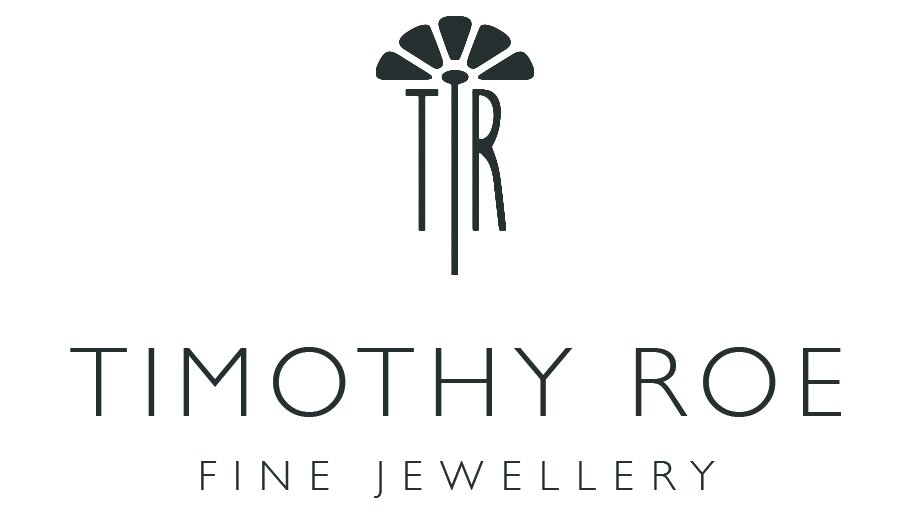The Truth Behind Conflict Diamonds
Conflict Diamonds and the Kimberley Process 2002
Many consumers today seek reassurance that the diamonds they purchase are not "blood diamonds," a term that gained prominence following the release of the Leonardo DiCaprio film Blood Diamond in the early 2000s. The ethical sourcing of diamonds is a significant concern, and it has led many buyers to opt for laboratory-grown alternatives. Fortunately, stringent processes and checks are now in place to prevent conflict diamonds from entering the mainstream jewellery market. This article explores those safeguards and highlights some of the dedicated organisations working tirelessly to protect both people and the planet. It also offers guidance on how consumers can make informed choices and avoid disappointment or regret. This is a recommended read for those seeking reassurance.
The Kimberley Process (2002) and the System of Warranties (2003)
The Kimberley Process (KP) is an international initiative that brings together governments, industry leaders, and civil society to eliminate the trade of conflict diamonds. By enforcing strict certification standards and compliance measures, the KP ensures that participating nations uphold high ethical standards to keep conflict diamonds out of legitimate markets.
The diamond industry plays a crucial role in the economic development of many countries, particularly those in the southern hemisphere. When managed responsibly, diamond revenues contribute to essential infrastructure, healthcare, and education. However, when diamonds are used to fund armed conflicts, as was the case in Sierra Leone during the 1990s, they become a source of devastation. Rebel groups seized control of diamond-rich regions, using the profits to finance violence against legitimate governments—a crisis that the Blood Diamond film portrays.
To prevent such tragedies from recurring, the Kimberley Process was introduced in 2002. This certification scheme requires that rough diamonds be traceable from their source to the cutting factory. Every shipment of rough diamonds between participating countries must be accompanied by a Kimberley Certificate, which contains a unique number and detailed information about the shipment. Tampered or uncertified shipments are prohibited from entering legitimate trade channels.
While the Kimberley Process only applies to rough diamonds crossing international borders, the World Diamond Council’s System of Warranties extends these assurances to polished diamonds and diamond jewellery. Since 2003, sellers of both rough and polished diamonds have been required to include the following declaration on invoices:
“The diamonds herein invoiced have been purchased from legitimate sources not involved in funding conflict and in compliance with United Nations resolutions. The seller hereby guarantees that these diamonds are conflict-free, based on personal knowledge and/or written guarantees provided by the supplier of these diamonds.”
Diamond businesses must maintain records of all invoices to demonstrate compliance should an authorised government agency conduct an audit. While not perfect, the Kimberley Process has significantly improved transparency in the diamond trade, and continuous efforts are being made to strengthen its effectiveness.
The World Diamond Council (WDC)
Founded in 2000, the World Diamond Council represents the diamond and jewellery industry within the Kimberley Process. It plays a pivotal role in the ongoing fight against conflict diamonds and ensures industry accountability.
In 2002, the WDC launched the System of Warranties to complement the Kimberley Process Certification Scheme. This system extended ethical assurances beyond rough diamonds to polished stones and jewellery. In 2021, the System of Warranties was further strengthened to include universal principles of human rights, labour rights, anti-corruption, and anti-money laundering.
With 76 members spanning the entire diamond supply chain, the WDC serves as a unified voice and a key safeguard for the industry's ethical integrity.
The Responsible Jewellery Council (RJC)
Established in 2005 by 14 leading industry organisations, the Responsible Jewellery Council (RJC) sets the global standard for responsible business practices in the jewellery and watch industry. Its membership includes over 2,000 companies across the supply chain, from mining to retail.
The RJC plays a critical role in ensuring that jewellery businesses uphold the highest ethical, environmental, and social standards. Certified members undergo regular independent audits to verify compliance, reinforcing consumer confidence in the ethical origins of their jewellery. The RJC also champions sustainability initiatives and promotes alignment with the United Nations' Sustainable Development Goals (SDGs).
CIBJO: The World Jewellery Confederation
The World Jewellery Confederation (CIBJO: Confédération International de la Bijouterie, Joaillerie, Orfèvrerie des Diamants, Perles et Pierres), headquartered in Bern, Switzerland, plays a pivotal role in establishing and maintaining industry standards for the global jewellery, gemstone, and precious metals sectors. As the oldest international organisation of its kind—founded in 1926—CIBJO represents professionals across the entire supply chain, from mining and processing to manufacturing and trade.
At the core of its mission is the assurance that ethical and sustainable practices are upheld from mine to market. CIBJO works to harmonise technical standards, terminology, and operational principles while advocating for responsible sourcing and transparent supply chains. Through its renowned Blue Book system and additional guidance documents, the Confederation sets universal benchmarks to protect consumer confidence and industry integrity.
Serving as a centre for knowledge and education, CIBJO fosters collaboration through research, discussion, and policy development. It actively supports sustainability initiatives and programs designed to safeguard the authenticity and ethical provenance of gemstones, precious metals, and finished jewellery, ensuring that the highest standards are met across the global industry.
The National Association of Jewellers (NAJ)
In the UK, the National Association of Jewellers (NAJ) serves as an industry watchdog, ensuring that jewellers adhere to ethical codes of conduct. It functions similarly to consumer protection organisations like Check-A-Trade and Trading Standards, offering guidance and oversight for more than 1,400 member companies employing over 24,000 people.
The NAJ also serves as an educational centre for jewellers, offering a wide range of courses and training across various skills and specialisations within the jewellery industry. Its educational programme provides internationally recognised courses and qualifications, catering to everyone from trainees to proprietors and senior staff. Covering fundamental topics such as metals, jewellery and watchmaking, diamonds and gemstones, valuations, and laws, the NAJ ensures that industry professionals maintain the highest standards of integrity, professionalism, knowledge, and expertise.
Formed in 2015 through the unification of the British Jewellers' Association (BJA) and the National Association of Goldsmiths (NAG), the NAJ holds its members accountable to a strict Code of Conduct based on honesty, integrity, and professionalism. Consumers are encouraged to verify whether a jeweller is an NAJ member before making a purchase in their store. You can find a jeweller member here: https://www.naj.co.uk/find-a-jeweller. Timothy Roe Fine Jewellery Ltd. has been a long time member (no. 43328) since we opened in 1996.
How Consumers Can Make The Right Choices
For those concerned about ethical sourcing and genuine conduct and integrity within the industry, here are some tips to ensure your diamond and/or gemstone purchase aligns with responsible practices:
Check for Certification and Diamonds Laser Inscribed with Numbers: If your diamond is over 0.30 ct it is likely to have a report and have a number laser inscribed onto its girdle. The report/dossier should be from a well known and established gem laboratory like GIA, IGI, SSEF etc. and you should be able to check this number on their websites.
Consider buying Traceable Diamonds: Diamonds like Canadamark Diamonds can be traced back to their origin.
Buy from Reputable Qualified Jewellers: Choose retailers affiliated with organisations such as the RJC or NAJ. You can find a jeweller member here: https://www.naj.co.uk/find-a-jeweller.
Be Mindful of the Country you’re in when Purchasing Abroad: When abroad and buying unbranded pieces ask retailers or traders where they source their stones and how the jewellery is made to weigh up your purchasing decision. Please also bear in mind that hallmarking laws in different countries will vary and so will laws and regulations on nickel content.
Consider Laboratory-Grown Diamonds: If you prefer an alternative, laboratory-grown diamonds offer a conflict-free option with a lower environmental impact.
Final Thoughts
While the Kimberley Process is not flawless, it has dramatically improved transparency and accountability within the diamond trade. Today, the vast majority of diamonds on the market comply with the highest standards and stringent measures set by multiple organisations, and ongoing efforts by organisations like the World Diamond Council, Responsible Jewellery Council, CIBJO and NAJ continue to strengthen the industry's framework.
As a consumer, your choices matter. By purchasing from responsible jewellers and asking questions, you contribute to an industry that values human rights, sustainability, and ethical trade. The next time you admire a sparkling diamond, take pride in knowing that its journey has been shaped by the hands of those committed to positive change.
For more information, visit:
Kimberley Process
World Diamond Council
Responsible Jewellery Council
CIBJO
National Association of Jewellers





